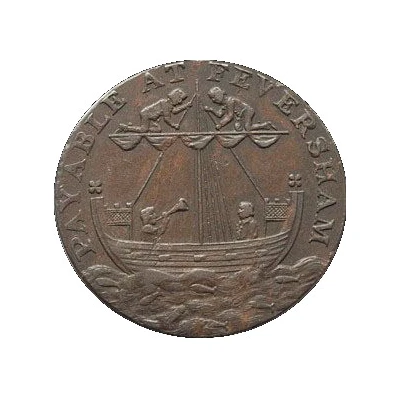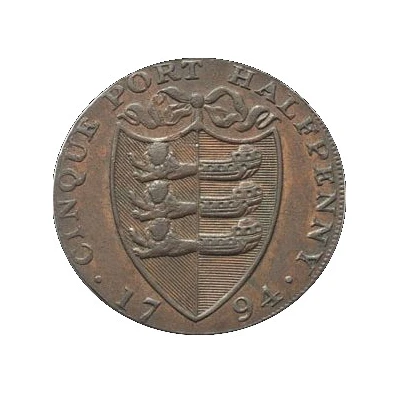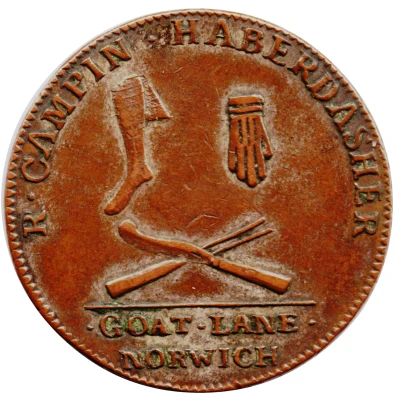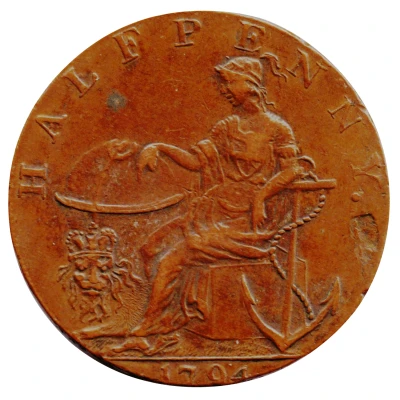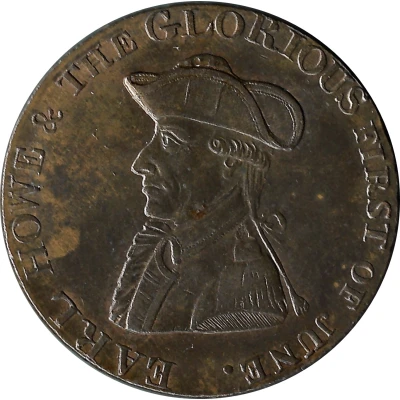
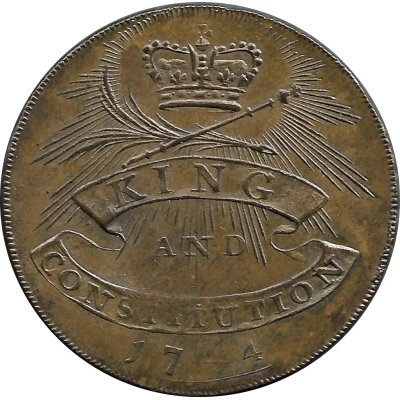

Obverse © Long-Johns-Silver – Reverse © Lauchlan46coins
½ Penny Hampshire - Emsworth / Earl Howe
1794 year| Copper | - | - |
| Issuer | United Kingdom (United Kingdom, British Overseas Territories and Crown Dependencies) |
|---|---|
| Type | Token |
| Year | 1794 |
| Value | ½ Penny (1⁄480) |
| Currency | Conder tokens (1787-1797) |
| Composition | Copper |
| Shape | Round |
| Technique | Milled |
| Orientation | Medal alignment ↑↑ |
| Demonetized | Yes |
| Updated | 2024-10-09 |
| Numista | N#227798 |
|---|---|
| Rarity index | 86% |
Reverse
Crown over sceptre and rays, banners and date below.
Script: Latin
Lettering:
KING
AND
CONSTITUTION
1794
Edge
Incuse lettering
Note: varieties exist
Lettering: PAYABLE IN HULL AND IN LONDON - x x -
Comment
Admiral of the Fleet Richard Howe, 1st Earl Howe, KG (1726–1799) was a British naval officer. At the beginning of the American War of Independence, Howe was known to be sympathetic to the colonists. He had known Benjamin Franklin since late 1774 and was joined in a commission with his brother, General Sir William Howe, head of the land forces, to attempt a reconciliation.https://en.wikipedia.org/wiki/Richard_Howe,_1st_Earl_Howe#American_Revolutionary_War
The Glorious First of June of 1794 was the first and largest fleet action of the naval conflict between the Kingdom of Great Britain and the First French Republic during the French Revolutionary Wars. The British Channel Fleet under Admiral Lord Howe attempted to prevent the passage of a vital French grain convoy from the United States, which was protected by the French Atlantic Fleet, in the Atlantic Ocean, some 400 nautical miles (700 km) west of the French island of Ushant on 1 June 1794.
https://en.wikipedia.org/wiki/Glorious_First_of_June
Interesting fact
One interesting fact about the Token ½ Penny (Hampshire - Emsworth / Earl Howe) 1794 from United Kingdom is that it was issued during a time of severe coinage shortages in the late 18th century. To address this issue, local authorities and merchants issued their own tokens, like this one, which were accepted as currency by the community. This coin is a rare example of a token that was issued by a private individual, Earl Howe, and it features an image of a ship on the reverse side, which represents the importance of maritime trade in the region.
